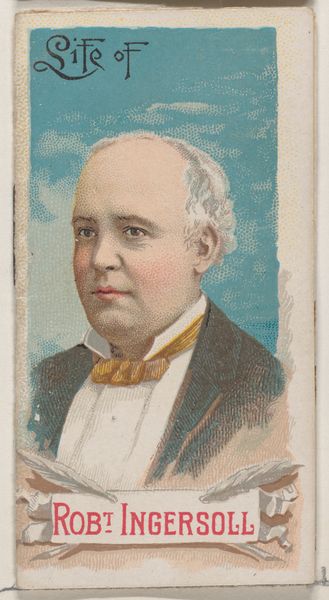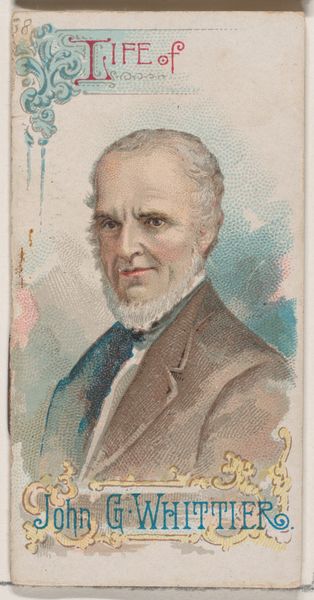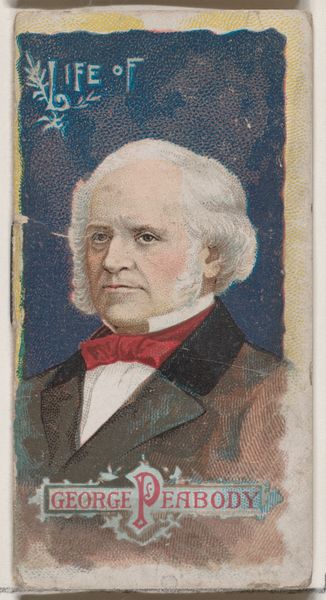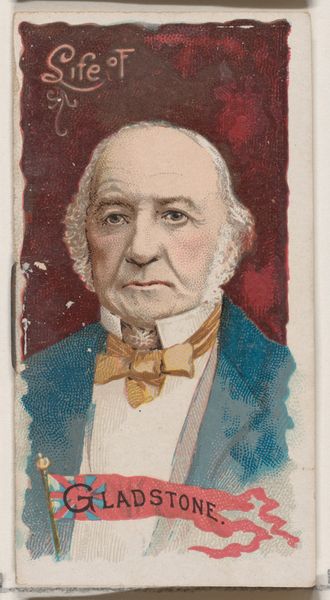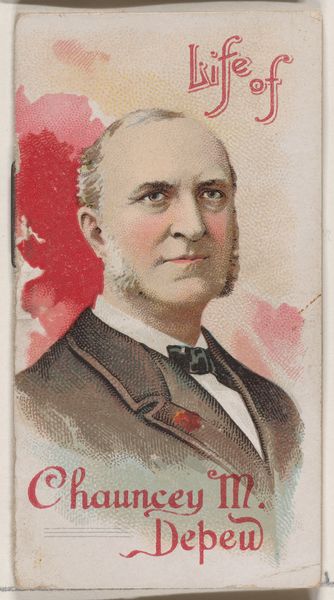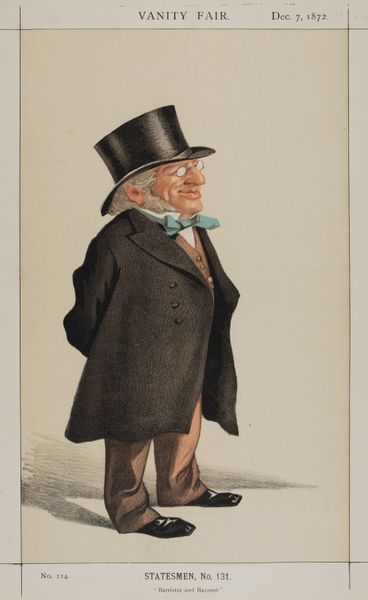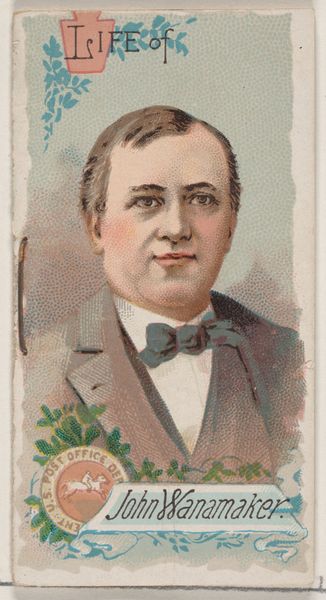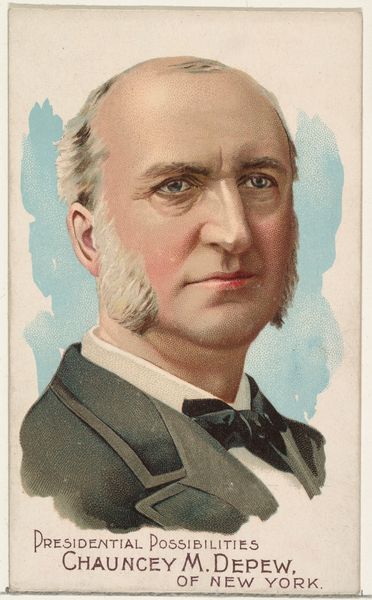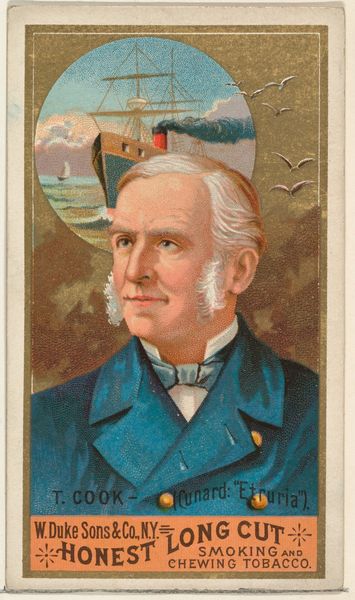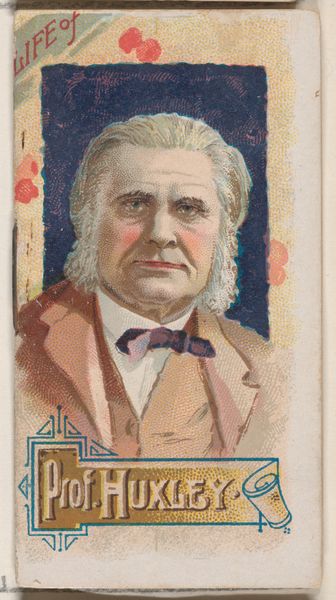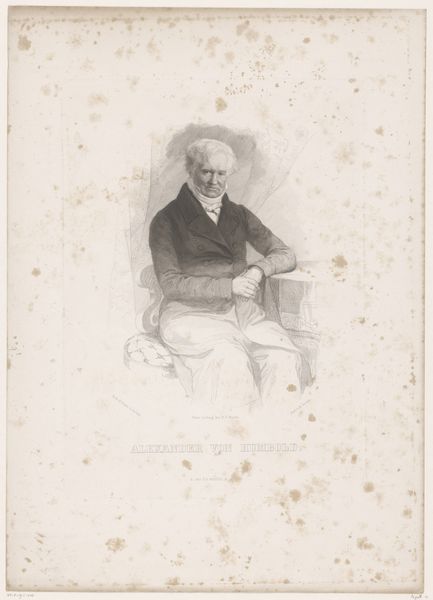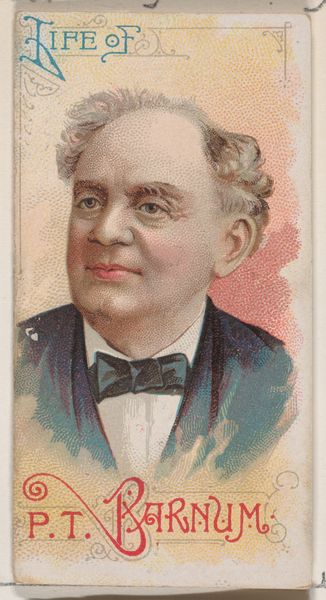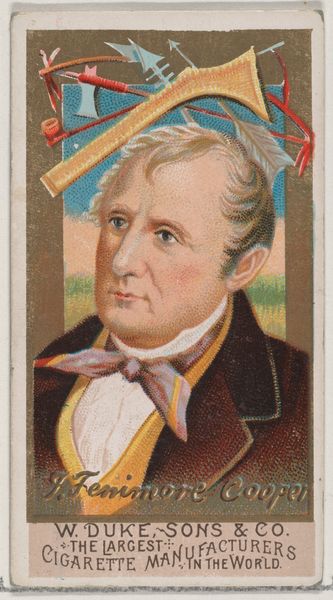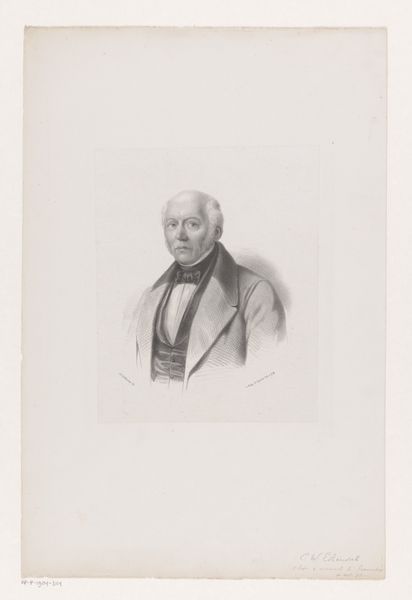
Life of Horace B. Claflin, from the Histories of Poor Boys and Famous People series of booklets (N79) for Duke brand cigarettes 1888
0:00
0:00
drawing, coloured-pencil, print
#
portrait
#
drawing
#
coloured-pencil
# print
#
coloured pencil
#
post-impressionism
Dimensions: Overall (Booklet closed): 2 3/4 × 1 1/2 in. (7 × 3.8 cm) Overall (Booklet open): 2 3/4 × 2 7/8 in. (7 × 7.3 cm)
Copyright: Public Domain
This tiny paper booklet, made around the turn of the century by W. Duke, Sons & Co., is chromolithography, a now obsolete method of mass color printing. The image of Horace B. Claflin, a merchant who rose from poverty to wealth, was created by layering multiple colors from lithographic stones. Each hue required separate preparation and printing, a labor-intensive process that nonetheless allowed for mass production. These cards were distributed with Duke brand cigarettes, and signal a shift in consumer culture, where even everyday items became vehicles for advertising and aspirational narratives. The very smallness of the booklet speaks to its disposability, designed for fleeting attention amidst a glut of competing images. Considering the intense effort required to produce chromolithographs, it underscores the paradoxical nature of industrial capitalism. While offering the promise of upward mobility, it simultaneously relied on extensive labor and a culture of consumption. So, this small object raises big questions about the relationship between labor, class, and the stories we tell about success.
Comments
No comments
Be the first to comment and join the conversation on the ultimate creative platform.
